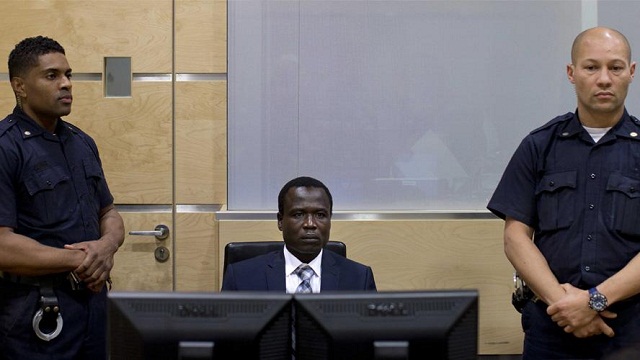
Five questions and answers on the ICC
The Hague, Netherlands | AFP |
The Gambia has become the third country in just a matter of weeks to announce it plans to withdraw from the International Criminal Court (ICC).
The shock announcement will be a personal blow to the tribunal’s chief prosecutor Fatou Bensouda, a Gambian lawyer and former justice minister.
The Gambia’s move comes after South Africa dealt the world tribunal a huge setback on Friday by announcing its intention to leave, in the wake of a similar move by Burundi earlier in October.
Here are five key questions about the future of the tribunal set up in The Hague in 2002 to prosecute the world’s worst atrocities:
Beginning of the end for the ICC?
It is not, according to Harvard law professor Alex Whiting
“International criminal justice has always had its ups and downs and setbacks in the past. This is another setback, but the court is not going to disappear,” he told AFP after Pretoria’s announcement.
The ICC’s founding Rome Statute “is a treaty and parties are free to leave it as they want,” said Aaron Matta, senior researcher at The Hague Institute for Global Justice think-tank.
Announcements to leave send the “wrong message,” Matta agreed. “But in the end, the ICC is there for the victims, not the ones in power who decide to enter or leave a treaty.”
Will there be mass withdrawal now?
Probably not. These moves “may have opened a gate or a doorway for other countries… and it may be possible for other countries like Kenya and Uganda to follow as well,” said Whiting, but it does not mean many other African countries will choose to leave.
For instance, Gabon last month referred a case to the ICC after deadly unrest was triggered in the central African nation over disputed elections, analysts pointed out.
Of the 124 countries to have ratified the Rome Statute since 1999, 34 are African.
Will current probes in Africa continue?
Yes. It takes a year from when a notice of withdrawal is formally submitted to the UN secretary general for the move to be completed.
But any country is still beholden by its previous engagements to the court and the Rome Statute which underpins it.
Even if countries subject to preliminary assessments such as Burundi pull out, the statute specifically states that a withdrawal “shall not affect any cooperation with the court in connection with criminal investigations and proceedings… which commenced prior to the date on which the withdrawal became effective.”
Is Africa being unfairly singled out?
Of the current 10 full investigations, nine are underway in eight African countries.
But “the prosecution has to follow evidence, and they go where the evidence leads them,” said Matta.
“They are in Africa because the victims are there. They are in Africa because that’s where serious crimes have occurred and most of these situations in Africa have been referred to the ICC by the countries themselves,” Matta said.
Cases involving a full investigation of alleged crimes in the Central African Republic, Uganda, Mali and the Democratic Republic of Congo were all referred to the ICC by the governments of those states.
Cases in Libya and the Sudanese region of Darfur were referred by the UN Security Council. Only in Kenya and Ivory Coast did the prosecutor initiate such investigations, and even in these countries, the governments cooperated to some extent with the court.
What about cases outside of Africa?
The court has not focused exclusively on Africa. ICC judges in January gave the prosecutor permission to launch a full-blown probe into alleged war crimes in Georgia during its 2008 war with Russia over the breakaway South Ossetia region.
And other full investigations will follow.
The prosecutor is already conducting 10 other preliminary examinations — where issues of jurisdiction and admissability are evaluated — in countries as diverse as Afghanistan, Colombia, Iraq, Ukraine and in the Palestinian territories.
The ICC only acts as a court of last resort when states are unable or unwilling to do so. It can only operate where it has jurisdiction, either because the country is an ICC member state, or through a referral by the UN Security Council.
That means referring crimes in Syria, which does not recognise the court, has become highly political, and has been blocked at the UN Security Council by Russia and China’s vetoes.
 The Independent Uganda: You get the Truth we Pay the Price
The Independent Uganda: You get the Truth we Pay the Price





